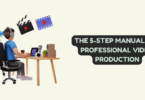
Finding the right job that matches your skills can be a daunting task, especially in today’s highly competitive job market. Many job seekers are often frustrated and discouraged after applying for jobs that don’t match their skills or interests. However, with the right strategies and approach, you can find a job that not only fits your skills but also aligns with your career aspirations.
Here are some strategies to help you find the right job that matches your skills:
1. Conduct a Self-Assessment
Before you start your job search, it’s essential to conduct a self-assessment to identify your skills, strengths, weaknesses, and career interests. If you’re like most people, you have strengths and weaknesses. It’s important to recognize both because it means that while you may not be great at everything, there are some things that you are really good at. And if you know what those things are, it will make it easier for you to find a job that matches them. This will help you identify the types of jobs that align with your skill set and interests. Consider taking personality and skills tests to gain a better understanding of your personality type, work style, and the types of jobs that would be a good fit for you. Skill tests can help you determine what jobs would best suit your abilities, so you can focus on applying for those jobs. Skill tests are also useful because they often come with detailed descriptions of the skills required for each position, which can help you prepare in advance.
2. Consider Working with a Recruitment Agency
Working with a recruitment agency like this recruitment agency in Australia can be an excellent option when looking for a job that matches your skills. Recruitment agencies have access to job openings that may not be advertised publicly and can help match you with jobs that align with your skill set and interests. Once you’ve found a reputable agency, it’s time to sit down with them and discuss your goals and needs. This is where they can help identify potential employers who might be interested in hiring someone like you based on their expertise or experience level within their industry sector. The next step is filling out an application form and participating in an interview process if necessary (which will also give them more information about your qualifications). Recruitment agencies can also provide valuable feedback on your resume and interview skills and help you prepare for interviews.
3. Research Job Opportunities
Researching job opportunities is critical when looking for a job that matches your skills. You can use online job boards, professional networking sites, and company career pages to search for job openings that align with your skills and interests. Also, make a list of companies you’d like to work for and research their job postings to see if they have any openings that match your skill set.
4. Tailor Your Resume and Cover Letter
When applying for jobs, tailor your resume and cover letter to the specific job and company. Highlight the skills and experience that align with the job requirements, and use industry-specific keywords to increase your chances of getting noticed. It’s important to make sure that your resume and cover letter are tailored to each position that you apply for. You should write an entirely different resume and cover letter for every company that you apply to, even if they are in the same field or industry. This ensures that every employer will see how well-suited you are for their company and gives them confidence that they won’t miss out on someone who might be a better fit than another candidate. You may differentiate yourself from other candidates and improve your chances of getting an interview by creating a strong resume and cover letter.
5. Network
Networking is a powerful tool when looking for a job that matches your skills. Attend industry events, job fairs, and professional networking events to connect with professionals in your field. Join professional associations and groups on LinkedIn to expand your network and gain access to job openings. Networking can help you learn about job opportunities that are not advertised and connect you with recruiters who can help you find the right job.
6. Leverage Social Media
Social media can be a valuable tool when looking for a job that matches your skills. LinkedIn, in particular, is an excellent platform for job seekers to showcase their skills, connect with professionals, and search for job openings. Use LinkedIn to build your professional brand, connect with recruiters and hiring managers, and join industry-specific groups to stay up-to-date with the latest trends and opportunities.
7. Be Patient and Persistent
Finding the right job that matches your skills may take some time, so it’s essential to be patient and persistent. Don’t get discouraged if you don’t get a job offer right away. Keep refining your job search strategies, and continue to build your network and professional brand. With persistence and determination, you’ll find the right job that matches your skills and aligns with your career aspirations.
Conclusion
In conclusion, finding the right job that matches your skills is all about taking the right approach and using the right strategies. Conduct a self-assessment, research job opportunities, tailor your resume and cover letter, network, leverage social media, consider working with a recruitment agency, and be patient and persistent. With these strategies, you can find the right job that matches your skills and sets you on the path to fulfilment.






